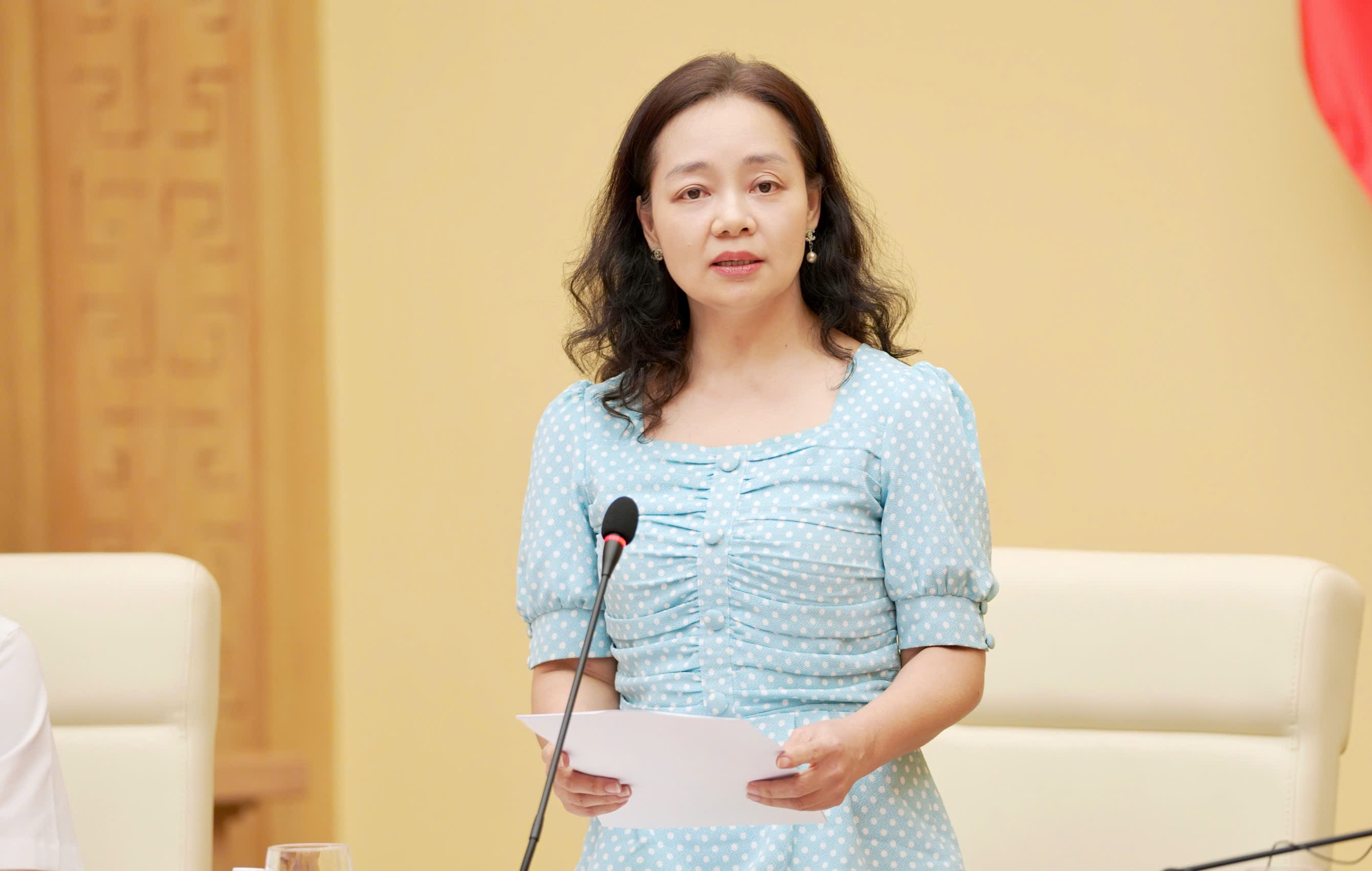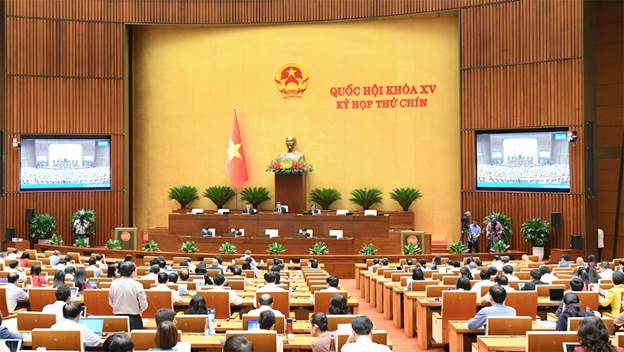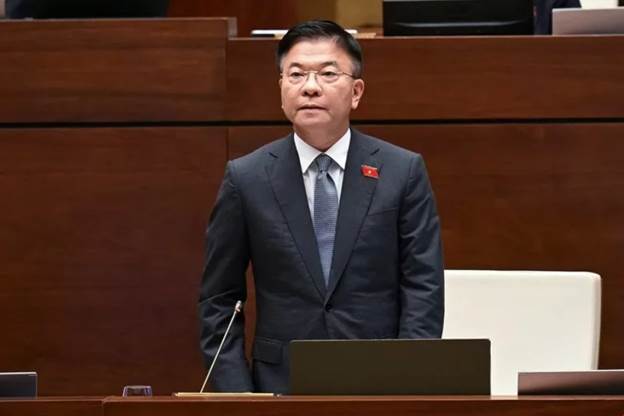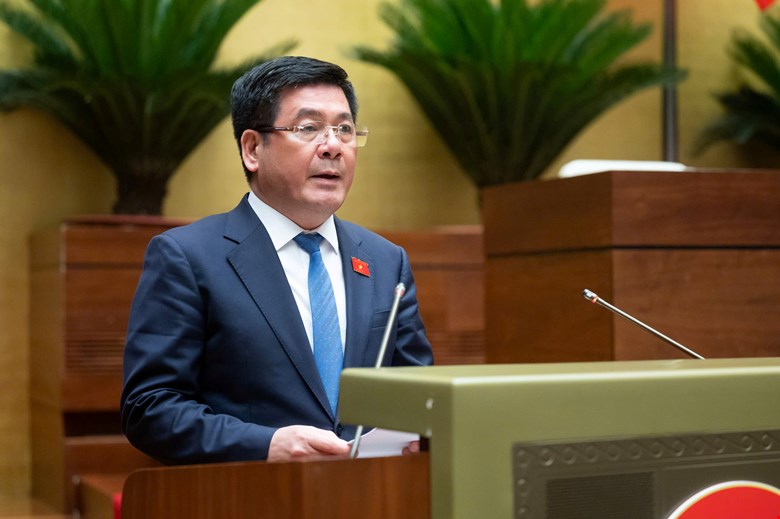The amendment draft of the ECC Law, prepared by the Ministry of Industry and Trade, has recently been discussed, consulted upon, refined and is expected to be submitted to the National Assembly for approval through a one-session legislative process at the ongoing 9th Session of the 15th National Assembly.
The National Assembly is scheduled to review and adopt the draft law on June 18 as part of its session agenda.
This is an important legislative initiative aimed at institutionalizing the Party’s policies on energy efficiency, addressing shortcomings in the current law, ensuring consistency within the legal system, and aligning with both domestic and international contexts, including commitments Vietnam has made globally. At the same time, it seeks to strengthen state management effectiveness, create a favorable legal framework, and encourage and promote energy efficiency activities; while leveraging domestic and international resources to support energy-saving investments and stimulate the energy-efficient product market.
Deputy Prime Minister Le Thanh Long responds to National Assembly deputies’ comments.
Minister of Industry and Trade Nguyen Hong Dien emphasized: “This amended of ECC Law aims to address practical issues that have arisen in Vietnam, align with international legal practices and standards, enhance the effectiveness and efficiency of state management, eliminate legal barriers, and create an enabling legal framework with stronger incentives to promote energy efficiency nationwide.” The draft law closely adheres to four policy directions previously submitted by the Government to the National Assembly Standing Committee, without introducing any new policy changes. It proposes amendments and supplements to 21 clauses across 19 articles of the 2010 EEC Law.
Minister of Industry and Trade Nguyen Hong Dien presented the Report at the National Assembly meeting on May 5.
The draft law is concise and structured into three articles: Article 1: Amendments and supplements to the Law on Energy Efficiency and Conservation; Article 2: Implementation provisions; Article 3: Transitional provisions.
Ms. Nguyen Thi Lam Giang, Director General of Innovation, Green Transition, and Industrial Promotion Agency under the Ministry of Industry and Trade, noted: “The revised law focuses on several key areas. First, it legalizes and specifies the Party’s policies on energy and science, technology, and innovation development, particularly Resolution 55 on energy development and Resolution 57/NQ-TW on science, technology, innovation, and digital transformation. Second, it emphasizes decentralization by transferring certain powers from the Prime Minister to local authorities and relevant ministries. Third, it advances administrative reform by cutting 50% of administrative procedures compared to the existing law. Fourth, it includes measures to support businesses and energy users in reducing energy use through financial assistance, including for energy service companies (ESCOs).”

Ms. Nguyen Thi Lam Giang, Director General of Innovation, Green Transition, and Industrial Promotion Agency under the Ministry of Industry and Trade.
Enhancing State Management Effectiveness in Energy Efficiency
The revised law increases the responsibility of local governments for managing and monitoring compliance with energy consumption standards, norms, and energy efficiency and conservation plans for annual and five-year energy efficiency goals. It also requires tracking and urging the implementation of local plans, and inspecting compliance with ECC Law regulations.
Administrative procedures are to be simplified, particularly those related to issuing energy labeling certificates and energy auditing licenses. The Ministry of Construction is authorized to issue energy consumption norms in the production of construction materials within its jurisdiction.
Promoting Energy Consulting, Auditing, and Human Resource Development on the Energy Efficiency and Conservation sector
The legal framework will be improved to encourage the establishment and operation of energy service companies (ESCOs). These companies will be required to register or report their operations to the competent state agencies.
At the May 5 National Assembly session, many members expressed support for including provisions on ESCOs in the law. Mr. Le Quang Huy, Chairman of the National Assembly's Committee on Science, Technology, and Environment, stated: “This is a highly advantageous business model, allowing companies to invest in energy-saving equipment upfront and recover costs over time through performance contracts.”
An ESCO is a company that provides comprehensive services and solutions or invests in energy-saving and efficiency projects based on energy performance contracts. Their operations follow investment laws, including regulations on public-private partnerships. Excerpt from the amendment draft of the Law on Energy Efficiency and Conservation. |
The law also includes provisions to improve the quality of the energy efficiency workforce by specifying training content, certification programs for energy auditors and energy managers, and the duration and conditions for certification validity. It sets business conditions for energy auditing to ensure service quality.
The law mandates the public listing of individuals and organizations involved in energy services, as well as publishing names of those violating energy efficiency regulations on the official websites of regulatory agencies.
Strengthening local responsibility in inspecting and supervising compliance with regulations of the ECC Law.
Boosting Incentives and Financial Support for Energy Efficiency
A new provision allows for the establishment of a Fund for Promoting Energy Efficiency, designed to mobilize social and international resources while minimizing reliance on the state budget.
During the National Assembly session on May 28, Deputy Prime Minister Le Thanh Long stated: “The Government will develop a proposal for the establishment and operation of the Fund to ensure effective resource mobilization and proper management in line with its intended goals.”
The draft law also clarifies and expands financial support measures for investment in energy efficiency solutions, including production line upgrades, scale expansion using energy-saving technologies, and enhanced tax and land-use incentives for entities investing in energy-efficient product development.
Transforming the Market and Managing Energy-Consuming Equipment and Devices
The draft law expands and clarifies mandatory energy labeling requirements for certain construction materials.
At the May 28 session, Representative Tran Quoc Tuan (Tra Vinh) proposed that the Government issue a roadmap for mandatory energy labeling for construction materials with high electricity consumption impacts, such as glass, insulation, and other building materials. He also recommended aligning Vietnam’s energy performance standards with international ones and promoting private sector participation in testing and certification.
The law will update minimum energy performance standards, aiming to phase out outdated equipment and encourage a market shift toward high-efficiency, environmentally friendly products and technologies.
On May 5, Minister of Industry and Trade Nguyen Hong Dien, on behalf of the Government, presented at the National Assembly session the amendment draft of the Law on Energy Efficiency and Conservation. On May 28, continuing the 9th session of the 15th National Assembly, the National Assembly discussed the amendment draft of the Law on Energy Efficiency and Conservation. On June 9, at the 46th session, the National Assembly Standing Committee gave opinions on the Report, explained, accepted, and revised the amendment draft of the Law on Energy Efficiency and Conservation. It is expected that on June 18, the National Assembly will consider and approve the amendment draft of the Law on Energy Efficiency and Conservation. |
Innovation, Green Transition, and Industrial Promotion Agency, Ministry of Industry and Trade













 Consultation on the methodology for developing and updating energy consumption standards for four major industrial sectors
Consultation on the methodology for developing and updating energy consumption standards for four major industrial sectors
 Opening of the 2025 Energy-Efficient Equipment and Green Transition Exhibition Fair
Opening of the 2025 Energy-Efficient Equipment and Green Transition Exhibition Fair
 Energy-saving solutions and green transition promotion
Energy-saving solutions and green transition promotion
 The 9th VEPG Steering Committee Meeting: Strengthening Coordination for Viet Nam’s Just Energy Transition
The 9th VEPG Steering Committee Meeting: Strengthening Coordination for Viet Nam’s Just Energy Transition